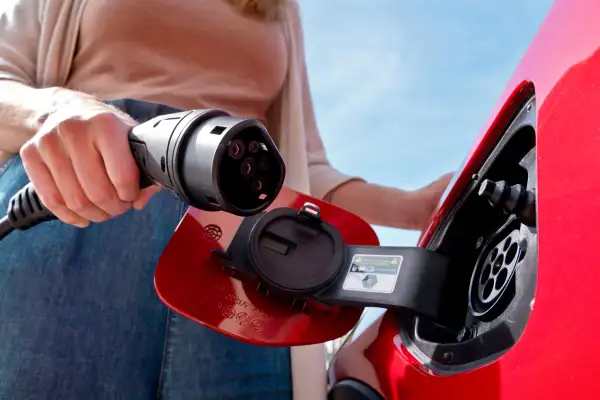Discounts on Electric Vehicles Are Ramping up as Sales Slump

Electric vehicles are selling slowly so far in 2024 in a disappointment for automakers that were betting on a faster pace of adoption.
In response, manufacturers like Ford are cutting sticker prices on EVs by thousands of dollars, and the industry is offering large incentive deals to try to tempt more buyers.
In the first quarter of the year, electric vehicles made up a 7.3% share of all new U.S. car sales, a decrease from a share of 8.1% in the previous quarter, according to Kelley Blue Book data. It was the first time since 2020 that EV sales declined from one quarter to the next.
“Until electric cars can compete with gasoline-powered models on price they will continue to sell at a slow rate and in small volumes,” Karl Brauer, executive analyst at iSeeCars, said in a report this week.
According to a recent survey by Edmunds, current EV offerings aren’t meeting the needs of all car shoppers who would potentially drive an electric model.
“There are sizable gaps between what consumers say are critical EV purchase considerations — namely price, brand trust, vehicle body type and driving range — and the actual vehicles available for purchase,” Jessica Caldwell, head of insights at Edmunds, wrote in a report.
For example, nearly half of surveyed “EV intenders” want to pay less than $40,000, but only four models have average transaction prices below that amount.
EV prices are falling as inventory rises
Kelley Blue Book’s data shows that EV prices are declining, largely due to limited demand among buyers and abnormally high inventory levels, even at the same time that many EVs are eligible for $7,500 tax credits.
The average price of a new EV was $55,167 in the first quarter, down 3.8% from the previous quarter and a 9% decrease from a year ago.
Even with EV prices being down, these cars are still selling for much higher prices than the average for all vehicles, which was about $47,200 in February. For many car shoppers, the convenience of being able to fill up a tank of gas in just a few minutes outweighs the benefits of EV driving.
Car shopping app CoPilot's data shows that EV prices fell by an average of $302 in March as a result of “decreased consumer willingness to deal with the logistical challenges associated with EV ownership.” Prices plummeted for the Hyundai Ioniq 5 (down $2,119) and the Volkswagen ID.4 (down $1,825).
Even though some automakers have reduced EV production in recent months, dealers still had a massive 114 days’ supply of EVs in mid-March, according to Cox Automotive. (That is the amount of time it would take to sell through the current inventory at the current sales rate.) For reference, a days’ supply of 60 or 70 is typically considered normal by industry standards.
For Tesla, which uses a direct-to-consumer model, higher inventory levels pose unique challenges as their “strategy leaves all the risk of managing inventory and its fluctuations on the company's books,” according to new analysis from Bank of America. Their research states that Tesla may be forced to reduce production in 2024 due to the slow sales pace of electric vehicles.

